Apple’s new iPad Pro keyboard is a bigger deal than you think
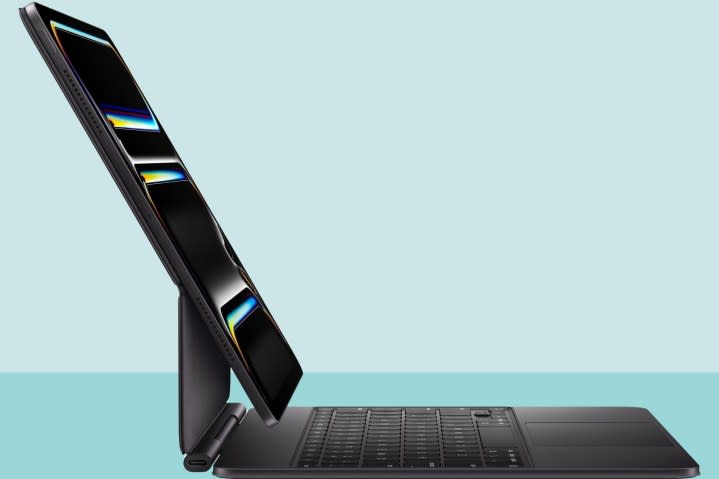
A fresh crop of iPads is here, and this time around, Apple pulled out all the stops. The new models feature an OLED display, new Pro apps, the thinnest chassis ever, and a next-gen M-processor that has yet to appear elsewhere save for the new iPad Pros. Starting at $999, Apple is charging quite some premium for its new slates. But what truly stood out to me was the new Magic Keyboard — and for multiple reasons.
This one has a full row of function keys and a dedicated escape button. For a device that wants to compete with a laptop, the lack of an escape key was quite a bummer, as was the lack of quick-control function keys. Heck, the Magic Keyboard for the base iPad got that perk, so it was an overdue tweak for the flagship iPadss.
Another notable change is the addition of a glass-covered trackpad that now offers haptic feedback. This is yet another quality-of-life change that doesn’t seem like much at first, but really makes a difference. Notably, the asking price remains unchanged at $299 for the 11-inch version and $349 for the 13-inch trim.
But the most notable upgrade is the choice of materials and the finish on the sides. The top deck portion is now made out of aluminum. The sides have also been flattened, and the whole assembly now looks more like a sleek laptop with a floating screen.
I love this keyboard, but it’s got problems!
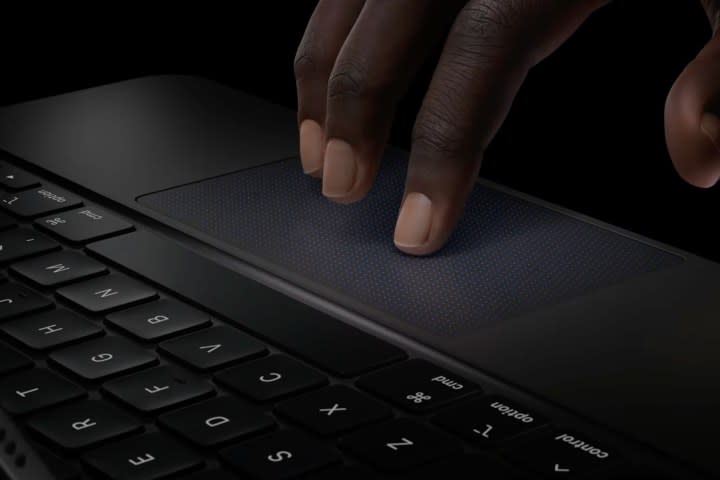
Now, metallic sides are an open invitation to scuff marks and permanent flat ends after bumps. I am typing this on a MacBook Air purchased merely a month ago, yet it already has a healthy few scratches on the side and a slight flattening in the top-right corner. But for the iPad, a flat metallic side should offer some respite from an old enemy.
Reddit, Apple support forums, and X (formerly Twitter) have a healthy few posts in which users have complained about the rubbery, soft-touch material peeling off.
YUP! And the leather is ripping on the underside corners too.
— Dan Turk (@danieljturk) February 1, 2022
Usually, the thin layer peels alongside the corners and edges, which is a hotspotfor wear and tear, but in this case, it’s evident in some rather odd spots. Take a look at my Magic Keyboard in the image below:
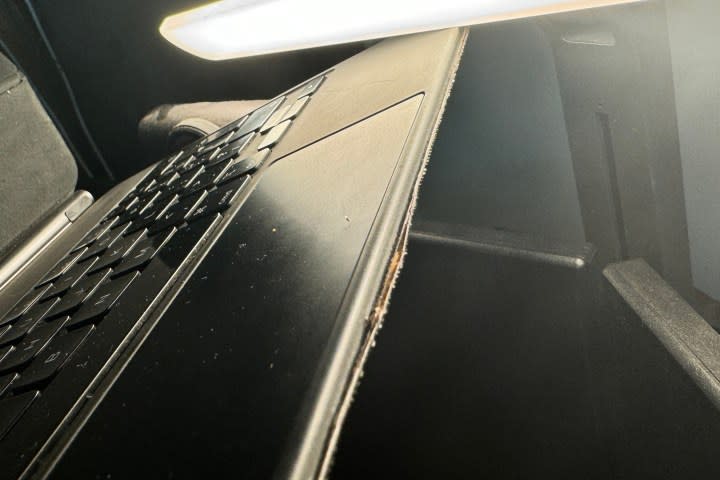
Yes, that’s the top layer opening alongside the seam. A few weeks ago, I noticed a thin streak of dried glue hanging outside. For most users, the peeling is most frequently evident in the rounded hinge area. The rubberized external coat also gets scuffed easily and leaves a permanent scar to show for the accident.
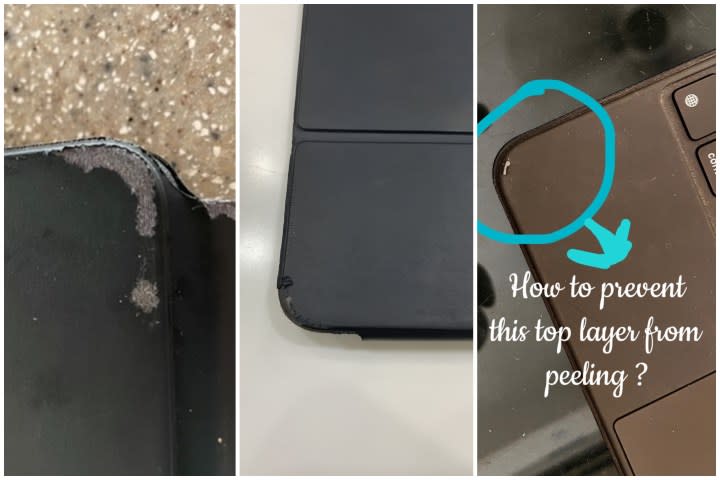
“On the edges of the keyboard at multiple points, the binding/glue was falling apart,” wrote one user on Medium. “A few weeks pass by. And then the fabric starts peeling. At first, there’s one small spot on the bottom of the keyboard. Then, a second spot forms as the first one grows bigger.”
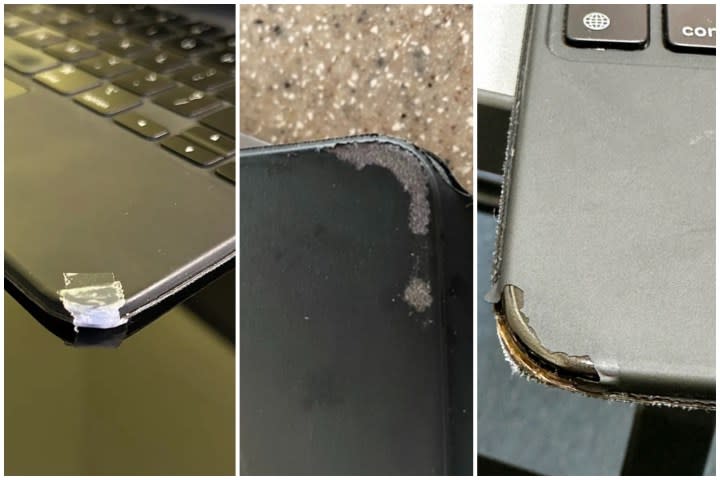
One would suspect that the device must have been exposed to extremes, but that doesn’t seem to be the case here. “I’ve had one for three years and it rarely travels and one of the corners is starting to wear,” writes another affected Magic Keyboard owner on Reddit.
“Mine is a quarter of the way off already,” reads another comment on the platform. For the lucky few with an Apple Care+ subscription, they got a replacement. But for DIY enthusiasts, there doesn’t seem to be a reliable solution. Once the peel is gone, there’s no fixing it.
One can call it a design defect, and it very much seems like one. But so far, we haven’t heard anything official from Apple. With the new Magic Keyboard adopting a metallic deck and sides, I hope the issue is gone, at least alongside the edges. But this is a long-term aftereffect we’re talking about, so we’ll have to wait and see how the updated version fares. At least from where we’re sitting right now, though, it looks like Apple made a big design change for the better.
